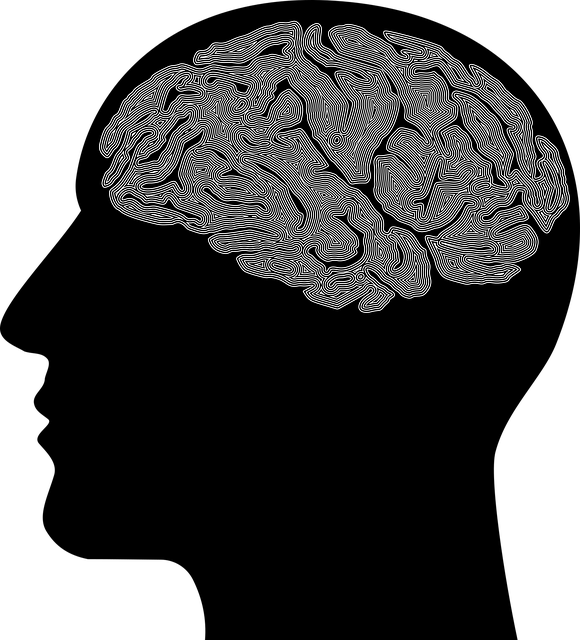Westminster Neuro Disorders Therapy offers crisis intervention services, focusing on immediate stability and long-term mental wellness. Their approach involves comprehensive assessments, tailored strategies, and compassionate care to address underlying issues and reduce stigma. Through active listening, open dialogue, and cultural sensitivity, they provide personalized support for individuals with neurological disorders, empowering them to navigate challenges and achieve recovery. After initial interventions, ongoing therapy, self-care resources, and regular check-ins ensure clients stay on track, leading to improved quality of life.
“Crisis intervention strategies are vital tools for professionals supporting individuals with neurological disorders, as evidenced by practices at Westminster Neuro Disorders Therapy. This comprehensive guide explores effective crisis support from understanding the foundation of intervention to tailored therapy approaches. We delve into identifying crisis triggers and assessing situations promptly, alongside immediate response techniques for stabilization. Additionally, it covers post-intervention follow-up strategies, emphasizing long-term recovery. By mastering these skills, professionals can provide expert care akin to that offered at Westminster.”
- Understanding Crisis Intervention: A Foundation for Effective Support at Westminster Neuro Disorders Therapy
- Assessing the Situation: Identifying Signs and Triggers for Interventions
- Immediate Response Strategies: Techniques to Stabilize and De-escalate Individuals in Crisis
- Tailoring Therapies: Individualized Approaches for Different Neurological Disorders
- Post-Intervention Follow-up: Ensuring Long-term Support and Recovery
Understanding Crisis Intervention: A Foundation for Effective Support at Westminster Neuro Disorders Therapy

At Westminster Neuro Disorders Therapy, we recognize that crisis intervention is a critical component of mental health support. It’s about being there for individuals in their time of greatest need, offering immediate assistance, and helping them navigate through traumatic or overwhelming situations. Understanding crisis intervention involves recognizing its purpose: to stabilize, provide respite, and foster hope. Our therapists are trained to assess the unique needs of each client, offering tailored strategies that go beyond temporary relief.
We believe in empowering individuals not just to survive but to thrive. This means not only providing direct support during a crisis but also helping them build inner strength and resilience. By addressing underlying mental wellness issues and fostering Mental Illness Stigma Reduction Efforts, we create an environment where clients can begin their journey towards long-term recovery. Westminster Neuro Disorders Therapy is committed to ensuring that every individual receives the compassionate care they need, ultimately enhancing their ability to cope with future challenges.
Assessing the Situation: Identifying Signs and Triggers for Interventions

Effective crisis intervention begins with a thorough assessment of the situation. Identifying signs and triggers is crucial in determining the appropriate response, as demonstrated by Westminster Neuro Disorders Therapy. Professionals must be attuned to both overt and subtle cues that indicate distress or impending crises. These can include dramatic changes in behavior, communication disruptions, or specific verbalized threats, all of which are addressed in the Mental Wellness Podcast Series Production.
Understanding the context is key. Recognizing patterns, personal history, and environmental factors helps in recognizing triggers that might set off a crisis. For instance, certain stressors can be identified through individual’s past experiences as part of Mental Health Education Programs Design, enabling interventions to be tailored to their unique needs. This proactive approach ensures a more effective response during critical moments.
Immediate Response Strategies: Techniques to Stabilize and De-escalate Individuals in Crisis

In moments of crisis, a swift and effective response can make all the difference. Immediate response strategies are vital tools for mental health professionals, such as those at Westminster Neuro Disorders Therapy, aiming to stabilize and de-escalate individuals in distress. The first step involves ensuring physical safety while maintaining a calm presence to help the individual feel heard and understood. This might include adopting a non-threatening posture, using a gentle yet assertive tone of voice, and creating a safe space free from distractions or potential hazards.
Effective communication strategies play a crucial role here. Mentally health professionals should encourage open dialogue, actively listening without judgment to identify the root cause of the crisis. Simple techniques like reflecting back what’s been said and asking clarifying questions can help de-escalate the situation, fostering an environment where individuals feel supported and understood. These initial steps lay the foundation for further risk management planning tailored to each individual’s unique needs.
Tailoring Therapies: Individualized Approaches for Different Neurological Disorders

In the realm of Westminster neuro disorders therapy, a key aspect is tailoring treatments to match the unique needs of each patient. Every individual with a neurological disorder experiences symptoms and challenges differently, necessitating personalized therapeutic approaches. This individualized care ensures that the treatment strategies are not just effective but also meaningful and relevant to the patient’s life. Therapists play a crucial role in evaluating cognitive functions, motor skills, sensory perceptions, and emotional states to design specialized interventions.
By integrating cultural sensitivity in mental healthcare practice and employing empathy building strategies, therapists can create an environment where patients feel understood and supported. Encouraging positive thinking is another essential component of these tailored therapies as it helps patients develop resilience and a more optimistic outlook on their conditions. These approaches not only enhance the effectiveness of treatment but also foster a deeper connection between therapist and patient, ultimately contributing to improved outcomes and quality of life for individuals navigating neuro disorders.
Post-Intervention Follow-up: Ensuring Long-term Support and Recovery

After an initial crisis intervention, providing ongoing support and follow-up care is paramount for long-term recovery. This stage involves a strategic approach to ensure individuals affected by neurodisorders or mental health crises regain their stability and develop effective coping mechanisms. At Westminster Neuro Disorders Therapy, we understand that every individual’s journey is unique, so our follow-up process tailors support according to personal needs.
This may include ongoing therapy sessions, incorporating techniques like self-awareness exercises from our Mental Wellness Podcast Series Production, or encouraging the adoption of beneficial self-care practices. Regular check-ins allow us to monitor progress, offer additional resources, and ensure individuals stay on track with their recovery goals. By fostering open communication and providing continuous guidance, we aim to empower clients to lead fulfilling lives despite challenges.
Westminster Neuro Disorders Therapy’s comprehensive crisis intervention strategies offer a robust foundation for supporting individuals during challenging times. By understanding the signs, assessing the situation swiftly, and employing tailored therapies, professionals can effectively de-escalate crises and promote long-term recovery. This guidance equips practitioners to navigate complex scenarios, ensuring that those in need receive the specialized care they deserve.














